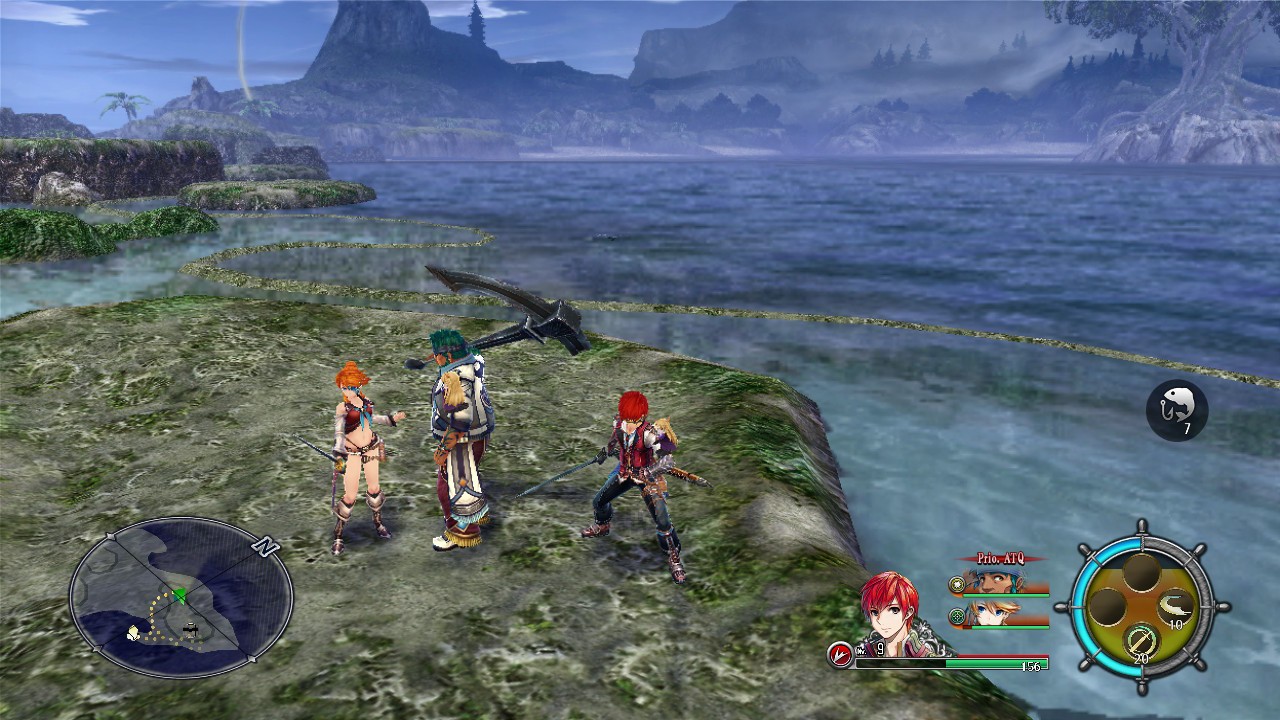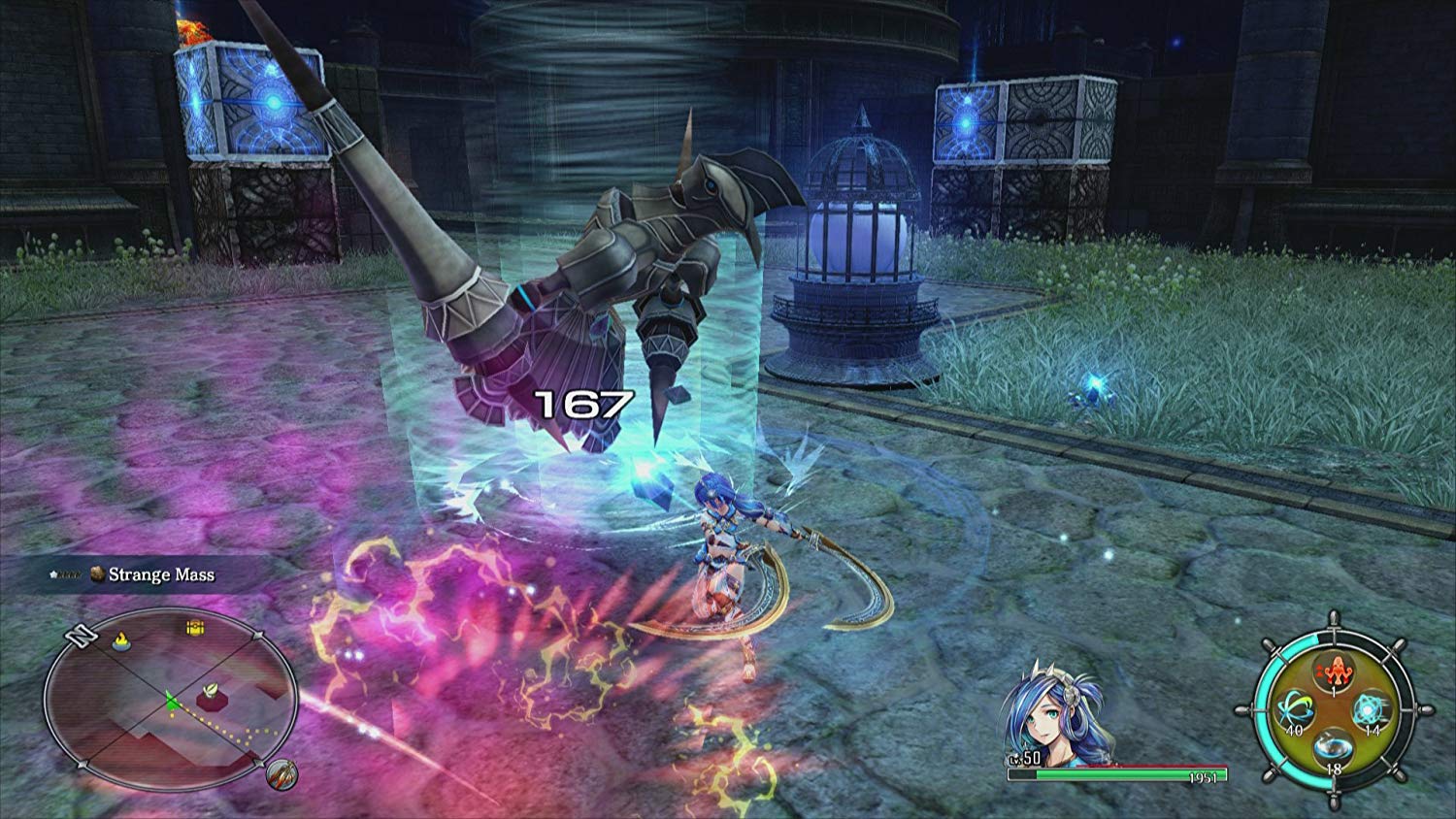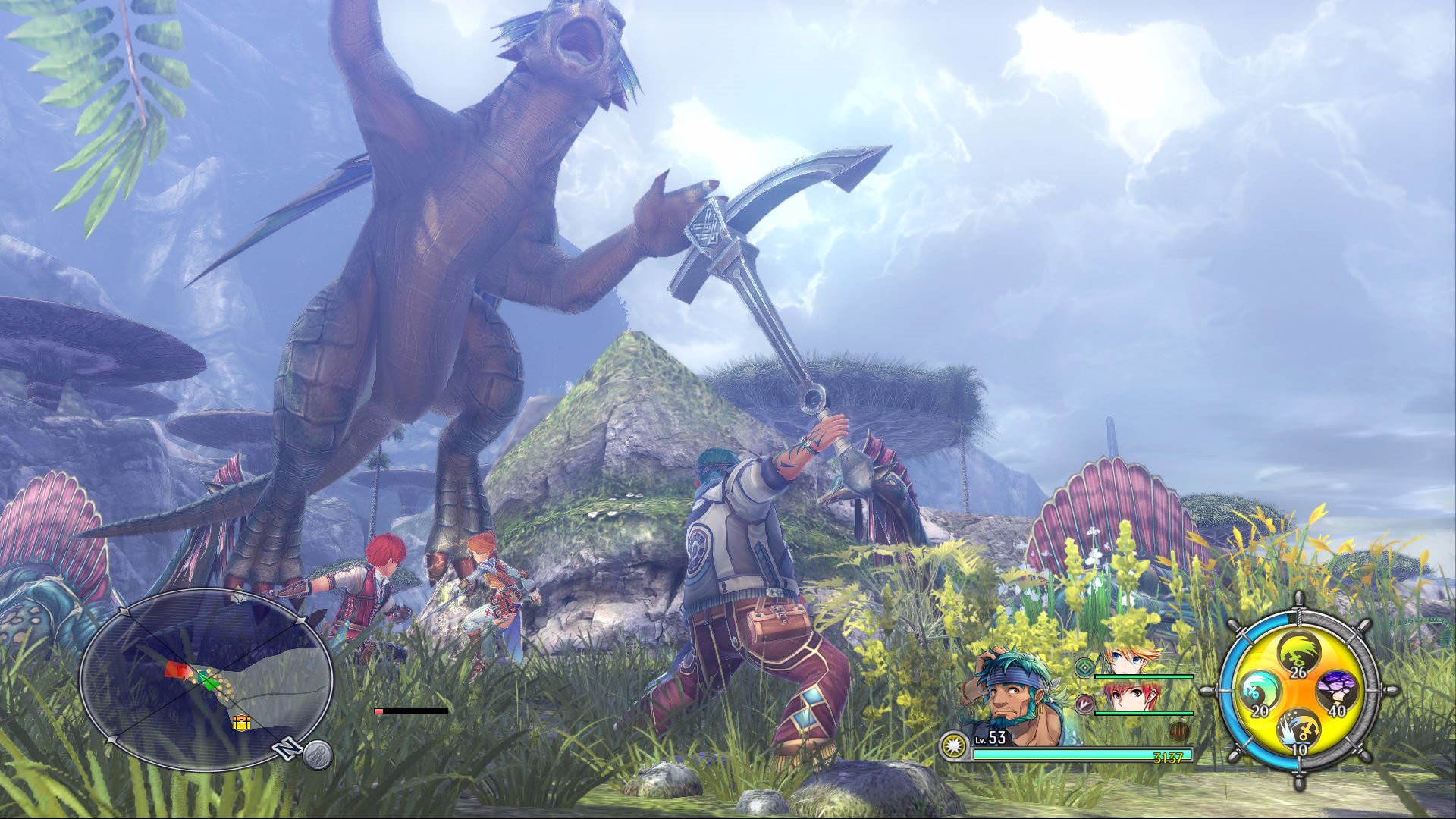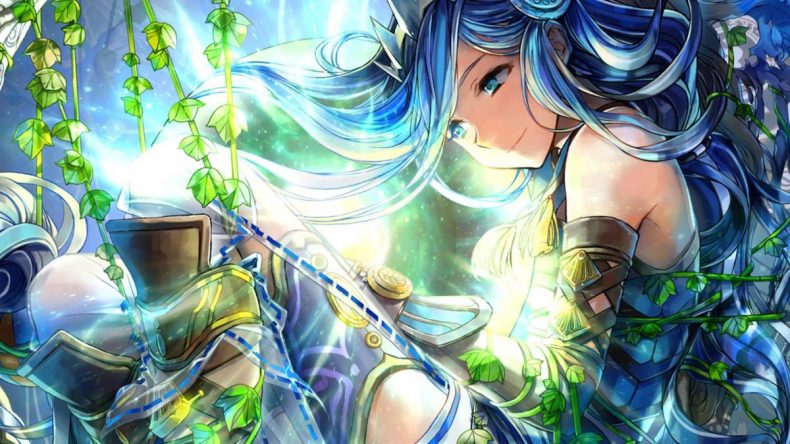Let me set the scene, stop me if you’ve heard it before.
You’re a plucky youngster, probably male, with an over-exuberant and positive outlook on life. You can see the good in everyone, you like making friends, or maybe the idea of them at least, because chances are you’re a bit of an outsider. You find yourself on an inexplicably long journey to overthrow an omnipotent evil, which despite your lack of years, everyone you encounter places absolute faith in your success, over say, anyone with more skill and experience. Chances are magic will be involved. There may also be airships.
Sound familiar?
I’m being deliberately pedantic, but as I’m sure you’ll acknowledge, the above does sound a lot like the majority of JRPGs, particularly those that make their way over to the West.
It’s worth saying before we get too far in, that I very much enjoy JRPGs in spite of these familiar themes, there is something satisfying about good overcoming evil, and following each game’s differing plots even if the overarching themes are generally the same. Throw in some unique mechanics and some decent combat and there’s normally enough for me to get engaged with what’s on offer. So when Ys VIII: Lacrimosa of Dana moved onto my radar with a Switch release a while back, I didn’t give the story much of a second thought. I went in blind, subconsciously expecting a familiar tale of derring-do against a seemingly insurmountable foe.

And what has been most pleasing whilst playing this game is I didn’t get that at all. And this is a good a point as any to warn that there will be plot spoilers for the first half of Ys VIII from now on. Stop reading if you don’t want anything ruining.
Still here? Good.
The first and most obvious change to the usual JRPG fare is that there really isn’t any grand evil to defeat, at least for the majority of the game. Instead your character and a bunch of others begin the game on a ship, that after a tussle with a giant tentacled monster, ends up a wreck. You all find yourself stranded on a deserted island, and your key purpose is survival, and eventually escape from the island. That’s right there’s no escaped princess from an oppressed empire to save, no power-hungry cult looking to dominate the world. Your primary concern is to not die, which as existential concepts go could be said about most games for sure. But in those games, death is a byproduct of failure, the prevention of which facilitates the story rather than being what drives it.
Your immediate task is to explore the island, gather materials to build shelter, and look for other survivors of the shipwreck. And despite it essentially being a mechanic to explore new areas, and introduce new characters to the story, it actually feels more engaging than normal JRPG fare. And that’s because staying alive is about as relatable a purpose as you can get, and feels much more personal than “go to location X because person Y said there was something there you need to progress” which is your normal checklist in these games. Knowing that your protagonist is in danger, makes you as the gamer care more about what happens to them.
And as you progress this story, and find more people stranded in various parts of the island, this band of unlikely friends unite towards their common goal. And this has two effects. The first is that the care you had for the main protagonist ends up extending to all of the castaways, because they are all in the same situation. You find yourself rooting for all of them, because you know if they all work together, that is their best chance to get off the island. But as well as this, their camaraderie feels real, you believe in it, which is a strength that can be overlooked. More often than not having various party members from differing backgrounds, and having differing views and outlooks conveniently fighting for the same purpose can feel somewhat contrived in JRPGs.

Why would a rich, opulent prince want to team up with the rogue and outcast to further their agenda? Normally because it’s convenient for the story beats, but not so in Ys VIII. Because all the castaways share the same peril, their cooperation makes sense and their teamwork is validated. It makes the absurd situation they find themselves in feel more real, if that makes sense, as opposed to other JRPGs that can simply be a consecutive set of forced situations.
So far so good, then. We’ve established a wide range of characters we care about whose teamwork makes more sense than most other titles. And all that in a setting whose ultimate evil is the situation rather than a group or individual threatening peace. Golf claps all round for originality.
But not content to rest on its laurels, the game then throws a massive curve-ball, channelling Lord of the Flies by way of Game of Thrones. Just as you are getting comfortable with growing your base and exploring more of the island, you’re called back for an urgent matter – the captain of the ship has been attacked, and you begin to suspect it’s either a spy or indeed one of the castaways themselves that is responsible. Time passes, and after getting fed up with the lack of progress to escape the island, a self-entitled noble (one of the castaways) takes your only small rowing boat and tries to row out to sea in the hope of hailing a passing ship, despite warnings from the group to the contrary.
I’m sure you can all guess how well this is going to end.
After drifting down the shore, the rowing boat is attacked by the same monster that caused all the trouble in the first place, it tears apart the tiny rowing boat, and throws the portly gentlemen into the ocean, who disappears, presumed dead. But that’s not really the point of the story, nor is the death particularly shocking or upsetting for the player, this character was a bit of an arsehole, never pulling his weight and always complaining. In George R. R. Martin terms this was a Joffrey death, one you’re almost pleased to see. No the shock comes afterwards, in that after witnessing the death from land, our hero and his band of helpers return to camp and update the group. Later a note is found written by the self-titled Nameless Ripper who was responsible for the Captain’s injuries earlier, and in it he claims responsibility for the noble’s death. But who could it be? Cue Eastender’s theme tune.

A bit of investigative work soon reveals that the Nameless Ripper is in fact the kindly doctor Kiergaard, and he’s nowhere to be found for questioning. Giving chase as a group you stumble on another castaway, but too late realise it is a trap laid by Kiergaard, and he unleashes a surprise attack that results in fatal wounds to Captain Barbaros, a character who up until this point was the leader on the island, who coordinated all the castaways and gave them hope. In Game of Thrones terms this is your Ned Stark death, the character who you assume by virtue of being good, loyal and “necessary” you subliminally think is above death. And with a single stroke they’re gone, and it felt like a sucker-punch I rarely feel in JRPGs. Sure a side character might end up dying and you wish they didn’t, but you never care about them much, so the impact is normally less. As I said before though, you care about these castaways (rude noble aside) and even more so the linchpin figure that held them all together. You feel genuine despair for the castaways’ future without their leader, and as a result, it’s a brilliant and unexpected twist.
But that’s not all, in the showdown fight with Kiergaard, his rationale takes a really interesting turn. And this is where William Golding’s Lord of the Flies comes in. The novel centres around a group of boys who are stranded on a deserted island (sound familiar?) and over time most of them fall into more savage and feral tendencies, in the absence of law and order. In his book Golding references “mankind’s essential illness” in that each and every one of us is capable of evil, and the situation the boy’s find themselves in, one where they define their own rules is used to demonstrate this fact. And so back to Kiergaard’s face off with our hero, Adol, where he states:
“I thought they would fall prey to beasts once despair set in” referring to castaways, “or they would fight amongst themselves after all semblance of order had broken down. But I was wrong, you the captain and the village have given them hope. Everyone has begun to work towards the common goal of escaping the island. It would be so tragic if something were to happen to you or the captain”
Kiergaard was clearly hoping mankind’s essential illness would take effect, but has seen that both Adol and Captain Barbaros inspired the group to overcome their savagery and band together, hence why the Captain became a target and why Kiergaard then turns on Adol. He claims to work for evil, because evil is necessary, gives meaning to society, and because “the conflict between good and evil is inevitable.” So yeah not your normal villain monologue, and very thought-provoking, if a little daft.

But the point is storytelling like this doesn’t normally reach into JRPGs, they prefer instead to remain in a safe, almost predictable territory that feels familiar, with only the occasional whiff of soul-searching or second-guessing required by the player. And it’s refreshing to see such different concepts at play in Ys VIII. I’m not saying all JRPG stories have to be new and different, just that they shouldn’t be afraid to think outside the box about how they make the player think and feel from time to time, because it is in those moments that we truly appreciate how good a story can be. It’s unsurprising that when I’m talking about two story beats in the game that really impressed me, I’m comparing them to well-known themes from respected authors.
And what is perhaps most impressive about all of this, is that this all happens at the end of Chapter 2 in Ys VIII, a game with 6 chapters and an epilogue. At this point half the island, its secretive past and what the heck that odd subtitle “Lacrimosa of DANA” actually means remain a mystery. This isn’t even a necessary plot point. Captain Barbaros didn’t need to die to progress the plot (unlike poor Ned Stark in Game of Thrones), it was purely done to illustrate the point that the situation that the castaways find themselves in is a very dangerous one, and no one is safe. It brings sharply into focus the need to escape the island by any means necessary, and makes you appreciate the characters all the more for it.
So needless to say Ys VIII impressed me. Not only is the gameplay very enjoyable but it combines with a story and characters that you really connect with more so than in your average JRPG. The genre could learn a lot from Nihon Falcom’s latest game, in that it’s okay to try something new, and consider the player as someone who can be toyed with emotionally, in good and bad ways, because that can make stories memorable. Throw in the usual feel-good factor of good triumphing over evil, and some kick-arse music, and you’re onto a winner.





